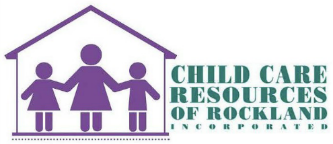Infants and toddlers learn and develop through repeated interactions and ever-evolving relationships with trusted adults. Healthy attachments can develop when the care is consistent, predictable, and responsive. Through these repeated experiences, infants and toddlers will begin to create expectations of others as well as form a sense of security and importance within those relationships.
Family members provide the foundation for a child’s social and emotional health. Through consistency, continuity, and respect for each child’s family and culture; child care providers can also ensure the children develop a sense of security and trust within their world. As infants and toddlers interact and develop relationships with their peers, they become significant contributors to one another’s sense of self.
Infants and toddlers are working hard to understand new feelings and ideas. They are learning about each of their caregivers, how to understand the world around them, and how to interact with others. When significant adults consistently provide responsive care and emotional support, the young child’s sense of security starts to develop; they begin to have a sense of self and recognize they have needs to be met. “Healthy social-emotional development for infants and toddlers unfolds in an interpersonal context, namely that of positive ongoing relationships with familiar, nurturing adults.” (California Department of Education 2009, 7).
As infants become more mobile, their interest in exploration grows exponentially. So, it is vital that their environment allows them to explore safely and freely. Having a significant adult by their side serves as a secure base for exploration. When infants and toddlers feel secure in their relationships, they can give their full attention to increasing their ability to expand their exploration of the world. This continual exploration aids in developing the young child’s sense of self identity.
It is critical that child care providers understand and promote the social emotional development of infants and toddlers. Particularly in group settings, caregivers need to ensure all children feel loved and supported. Through these significant relationships, children develop a sense of identity and an awareness of their experience of different feelings. They also learn about expectations - what is expected of them and what they can expect from those in the world around them.
California Department of Education. 2009. California Infant/Toddler Learning and Development Foundations. Sacramento, CA: California Department of Education. http://www.cde.ca.gov/sp/cd/re/documents/itfoundations2009.pdf
Social-Emotional Development, Responsive Caregiving, and Identity. WestEd (2019). Developed for the Program for Infant/Toddler Care (PITC)



